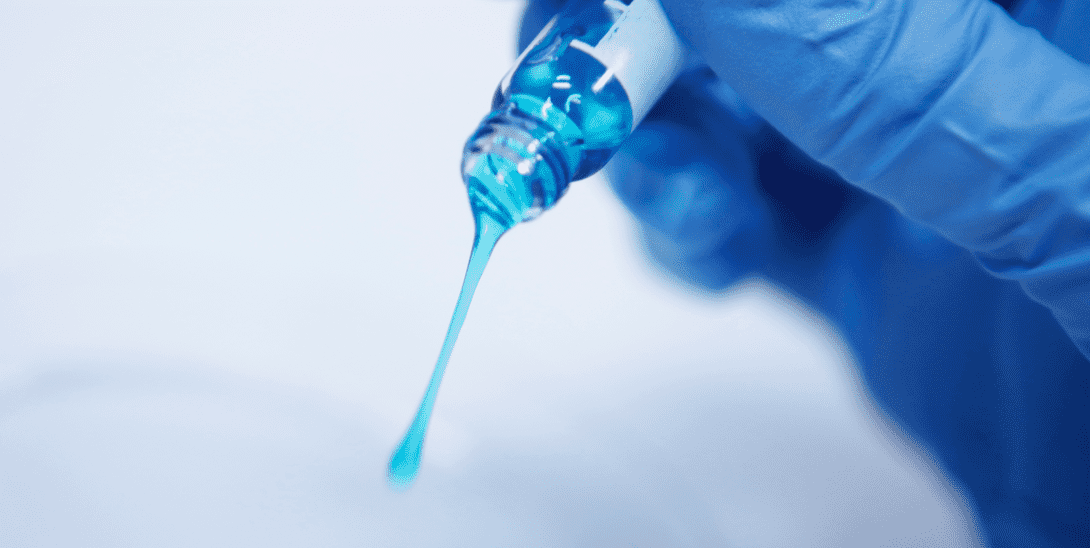Behind the Term Sheet: How TISSIUM is creating the future of tissue reconstruction with biomorphic programmable polymers

September 1, 2021
Europe
Today, body repair surgeries involve the use of fundamentally traumatic procedures, such as suturing and stapling. Even though the tools have been miniaturized in recent years, tissue trauma is only reduced — not eliminated. Further, there has been a lack of innovation in threads, glues and fillers which are decades old and have undesirable characteristics that limit their effectiveness.
Currently, there’s no one-size-fits-all solution for tissue reconstruction given the variety of procedures tissues need to heal from. But today, TISSIUM’s product portfolio is addressing three key sub-markets amounting to an opportunity of over $4.7B.
Peripheral Nerve Repair | $3B Market: The current standard of care for nerve damage largely uses microsurgery sutures to reconnect the severed nerves with the hope that nerve function can be restored. However, today’s treatment options (direct suture repair, conduits, wraps and fibrin glue) come with multiple challenges and the lack of consistency and control causes high levels of uncertainties in outcomes.
Vascular / Cardiovascular / Dura |$530M Market: The sealants in the cardiovascular and dural closure markets, used for peripheral vascular surgeries, suffer from serious shortcomings that limit their effectiveness. These include poor adhesion in wet (or bleeding) environments, long wait times for the sealant to solidify, swelling, toxicity, low viscosity which impacts application precision and finally a cumbersome, multistep preparation process that adds to procedure times. These shortcomings lead surgeons to relegate sealants as a last resort.
Gastrointestinal / Hernia Mesh Repair | $1.2B Market: Hernia operations are among the most common procedures performed today. Yet, current solutions involve using tacks and screws which have multiple problems and application inconsistencies that risk recurrence, pain and adhesions along with gaps and wrinkles that can delay tissue healing.
Enter TISSIUM: Creating the future of tissue reconstruction.
Led by healthcare industry veteran, CEO Christophe Bancel, and accomplished scientist Maria Pereira as Chief Innovation Officer, TISSIUM’s solution will revolutionize surgery. It is enabling new surgical techniques for atraumatic tissue repair and restoration of form and function.
TISSIUM developed a new biocompatible and biodegradable material, a polymer based on glycerol, sebacic acid and acrylate (PGSA), that mimics and enhances natural repair, making atraumatic surgery possible without the use of tacks, bolts and sutures. Its PGSA is non-toxic, photocurable and biodegradable, and does not expand in or react with biological tissues. Importantly, the polymer shows unique properties when photo activated such as its flowability while still being remarkably adhesive, pointing to a myriad of applications from sealants to tacking down mesh. This makes it ideal for repairing damaged tissues, re-joining nerves and reducing blood loss by sealing open blood vessels and larger arteries.

Image source: TISSIUM
TISSIUM’s breakthrough medtech product combines a proprietary biomorphic programmable polymer platform that’s expandable to address multiple large therapeutic markets with tailored delivery and activation solutions. Over the past years, the company has further developed and validated the technology in key areas including:
- Nerve repair system (CoaptiumTM): allows precise re-joining of severed nerves and restores functions
- High-pressure cardiovascular sealant (SetaliumTM): effectively contains blood loss during surgeries
- Atraumatic hernia repair: eliminates the use of tacks, enables precise hernia mesh placement, reduces pain and accelerates patient recovery
Beyond the first product lines, PGSA’s properties can be modified to address new areas and be used with 3rd party components (e.g. drugs, meshes), or 3D-printed in high resolutions to act as a guide or scaffold — opening the possibility to enter new verticals and markets. Several TISSIUM products have already been validated (or obtained the CE mark) but as the company continues its momentum towards commercialization and rapid international expansion, it is continuing to add to its platform with products in new therapeutic areas such as drug delivery.
Parting thoughts: The global health ecosystem fueling global health innovation.
Cathay Capital group has built a global cross-border investment platform and network – including leading multinational healthcare organizations like Sanofi and bioMerieux as collaborative strategic partners and investors in our funds, to help companies scale beyond their borders.
At Cathay Health, we’re building on this success by bringing in a team of seasoned healthcare investors, operators and advisors from the global health ecosystem to support groundbreaking companies like TISSIUM. By bridging business cultures and sharing knowledge and the local expertise from the US and Europe to China, we look forward to joining the TISSIUM journey on this next phase of commercialization and international expansion.